
Icehouse are an Australian rock band, formed in Sydney in 1977 as Flowers. Initially known in their homeland for their pub rock style, the band later achieved mainstream success playing new-wave and synth-pop music and attained Top 10 singles chart success locally and in both Europe and the U.S. The mainstay of both Flowers and Icehouse has been Iva Davies supplying additional musicians as required. The name "Icehouse", adopted in 1981, comes from an old, cold flat Davies lived in and the strange building across the road populated by itinerant people.
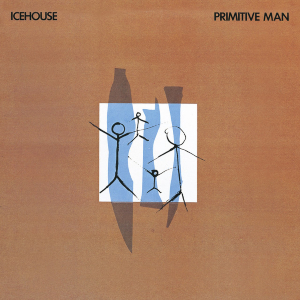
Primitive Man, the second studio album by Australian rock band Icehouse, was released on September 20th, 1982. In January 1982, Icehouse founder Iva Davies started recording Primitive Man essentially as a solo project. It was co-produced with Keith Forsey, who later worked with Simple Minds and Billy Idol. Forsey supplied additional percussion; Davies supplied vocals, lead guitar, keyboards, bass guitar and programmed the Linn drum machine. Released as an Icehouse album, Primitive Man reached number 3 on the National album charts and provided their international breakthrough single, "Hey Little Girl", which peaked at number 7 in Australia, number 2 in Switzerland, number 5 in Germany, the top 20 in UK, Sweden and Netherlands, and number 31 on the US Billboard Mainstream Rock chart. Another single "Great Southern Land" made the Australian top 5; it was later featured in the 1988 Yahoo Serious film Young Einstein, and remains their most popular song according to listeners of Triple M in 2007. To promote Primitive Man on tour, Davies re-assembled Icehouse with Michael Hoste (keyboards) and John Lloyd (drums), and new members: Bob Kretschmer, Guy Pratt and Andy Qunta.

Icehouse is the debut album released by Australian rock/synthpop band Flowers, later known as Icehouse, on the independent label Regular Records in October 1980. The title and the artist are sometimes incorrectly swapped, because the band changed their name from Flowers to Icehouse after this album was released. Containing the Top 20 Australian hits "Can't Help Myself", "We Can Get Together" and "Walls"; the album made heavy use of synthesisers, which would continue to be used throughout the band's career. Founder Iva Davies wrote all the tracks including four co-written with keyboardist Michael Hoste, however Hoste was replaced during recording sessions by Anthony Smith.

"Great Southern Land" is a song by Australian rock band Icehouse. It was released on 9 August 1982 as the lead single from their second studio album Primitive Man. It peaked at No. 5 on the Australian Singles Chart, it was later featured in the 1988 Yahoo Serious film Young Einstein, and remains their most popular songs according to listeners of Triple M in 2007.

Measure for Measure is the fourth studio album by Australian rock/synth-pop band Icehouse, released on 21 April 1986 in Australia by Regular Records and in the United States by Chrysalis Records. It was one of the first three albums to be recorded entirely digitally.
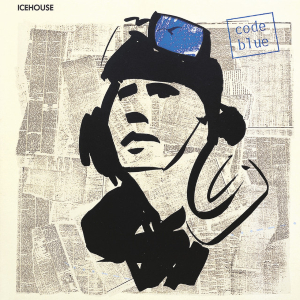
Code Blue is the sixth studio album by the Australian rock/synthpop band Icehouse and was released in November 1990 by Regular Records. Code Blue peaked at #7 on the Australian album charts.

Masterfile is the second compilation album by Australian rock band, Icehouse. The album covers material from the band's first album Icehouse to 1986's Measure for Measure. It also features a re-recorded version of their 1981 single "Love In Motion" with Christina Amphlett of Divinyls.

Fresco is an early 1983 EP released by Australian rock/synthpop band, Icehouse. It contains the same versions of "Hey Little Girl" and "Glam" from their 1982 album Primitive Man together with different versions of "Break These Chains", "Street Cafe" and "Over the Line". It was produced by Icehouse founder Iva Davies together with Keith Forsey for Chrysalis Records.
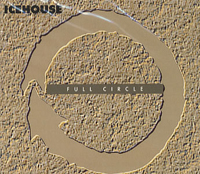
Full Circle is the first remixed album by Australian rock/synthpop band Icehouse released in December 1994 on Massive Records. It also features a variety of musicians including the Bangarra Dance Company, Elcho Island and guitar virtuoso, Buckethead who would later join Guns N' Roses.

"Hey Little Girl" is a single released by Australian band Icehouse, the second single from the band's 1982 album, Primitive Man. The album and single were co-produced by band member and the track's writer, Iva Davies, and Keith Forsey. It was released in November 1982 on Regular Records in 7" vinyl single and 12" vinyl single formats. UK and Europe releases by Chrysalis Records were also on 7" and 12" formats, but with different track listings. The single was then released in the US in 1983 on the same formats. On "Hey Little Girl", Iva Davies uses the Linn drum machine—the first for an Australian recording. It peaked at No. 7 on the Australian singles chart and No. 2 in Switzerland, No. 5 in Germany, Top 20 in UK, Sweden and Netherlands, and No. 31 on the Billboard Mainstream Rock chart.

Big Wheel is the seventh and final studio album by the Australian rock synthpop band, Icehouse, released on 25 October 1993 in Australia by dIVA Records – founder Iva Davies' own label – and Massive Records. It was recorded at Davies' home in Whale Beach during 1993 with Davies on vocals, guitar, bass guitar and keyboards, David Chapman on guitar, keyboards and backing vocals, and Paul Wheeler on drums, percussion and backing vocals. Big Wheel peaked at #44 and was their first studio album not to reach the Top Ten on the Australian album charts. The album was digitally remastered by Davies and Ryan Scott with five bonus tracks added for the 2002 re-release by Warner Music Australia.
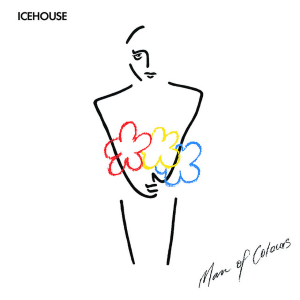
Man of Colours is the fifth studio album by Australian rock/synthpop band Icehouse, released locally on 21 September 1987 on Regular Records / Chrysalis Records.

The Berlin Tapes is a soundtrack album, credited to Australian rock musician Iva Davies and Icehouse. The record was a collaboration between Davies and classical music composer Max Lambert to accompany the Sydney Dance Company's production of the ballet Berlin, for which Icehouse performed live on stage.

"We Can Get Together" is the second single released by the Australian rock band Flowers, later known as Icehouse. It was released in September 1980, on the independent label Regular Records from their first album, Icehouse, two weeks before the album itself was released. It peaked at #16 on the Australian Kent Music Report Singles Charts.
The discography of Icehouse, an Australian rock and synthpop band, includes releases under the earlier band name, Flowers, which was formed in 1977 by the mainstay Iva Davies, and was renamed Icehouse in 1981; material was also released by "Iva Davies and Icehouse". Flowers or Icehouse have released seven studio albums, one soundtrack album, as well as four remix albums and forty singles.

Spin One is a four-track EP released by Australian rock/synthpop band Icehouse in June 1993. It was issued by Massive Records. Three tracks, "Shakin' the Cage", "Dedicated to Glam" and "MLK", are also on the double CD remix album, Full Circle, released in December 1994. "Byrralku Dhangudha" is an edited version of "The Great Southern Mix" with guest appearance by aboriginal performers, keyboardist Bernie Worrell (Parliament-Funkadelic) and avant-garde guitarist Buckethead, and was produced by Bill Laswell.
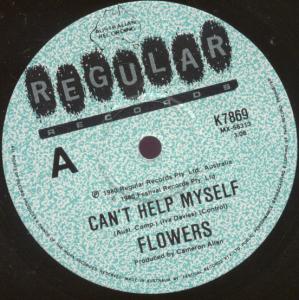
"Can't Help Myself" is the first single released by the Australian synthpop/rock band Flowers, later known as Icehouse. It was released in May 1980 as a 7" vinyl single on independent label, Regular Records, five months ahead of debut album Icehouse. A 10" vinyl single was released in July and had a cover depicting individual images of band members diagonally across the band's name and the single's title. It peaked at #10 on the Australian Singles Charts.

"Walls" is the third single released by the Australian rock band Flowers, later known as Icehouse. It was released in January 1981, on independent label Regular Records from their debut album, Icehouse, it peaked at #20 on the Australian Kent Music Reoport Singles Charts. It was also released in New Zealand, with a different cover, which was the last release before the band was renamed as Icehouse.

"Icehouse" is a song by the Australian rock band Flowers, later known as Icehouse. It was released as a single in Europe in 1982 by Chrysalis Records from the band's first album, Icehouse, after the band changed its name to Icehouse. In the United States, the song peaked at number 28 on the Billboard Top Tracks chart in 1981.

"Love in Motion" is the first new material released by the Australian rock synthpop band Icehouse as a 7" vinyl single-only in October 1981 on Regular Records for the Australian market. The band had been known as Flowers until 27 June 1981 after which they changed their name to Icehouse, they had signed to Chrysalis Records and most of Flowers' material was released under the new name into Europe, UK and US markets. "Love in Motion" peaked at #10 on the Australian singles charts. The B-side, "Goodnight, Mr. Matthews" was included on the 1982 album Primitive Man with "Love in Motion" included on the Chrysalis Records US / European versions of the album, the UK 1983 version of the album was re-titled Love in Motion.



















